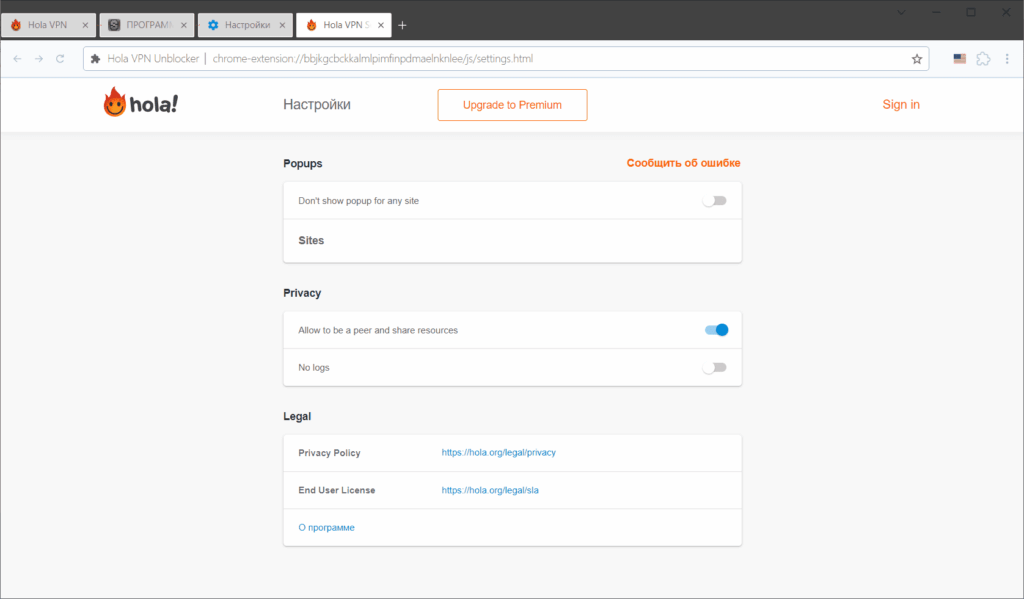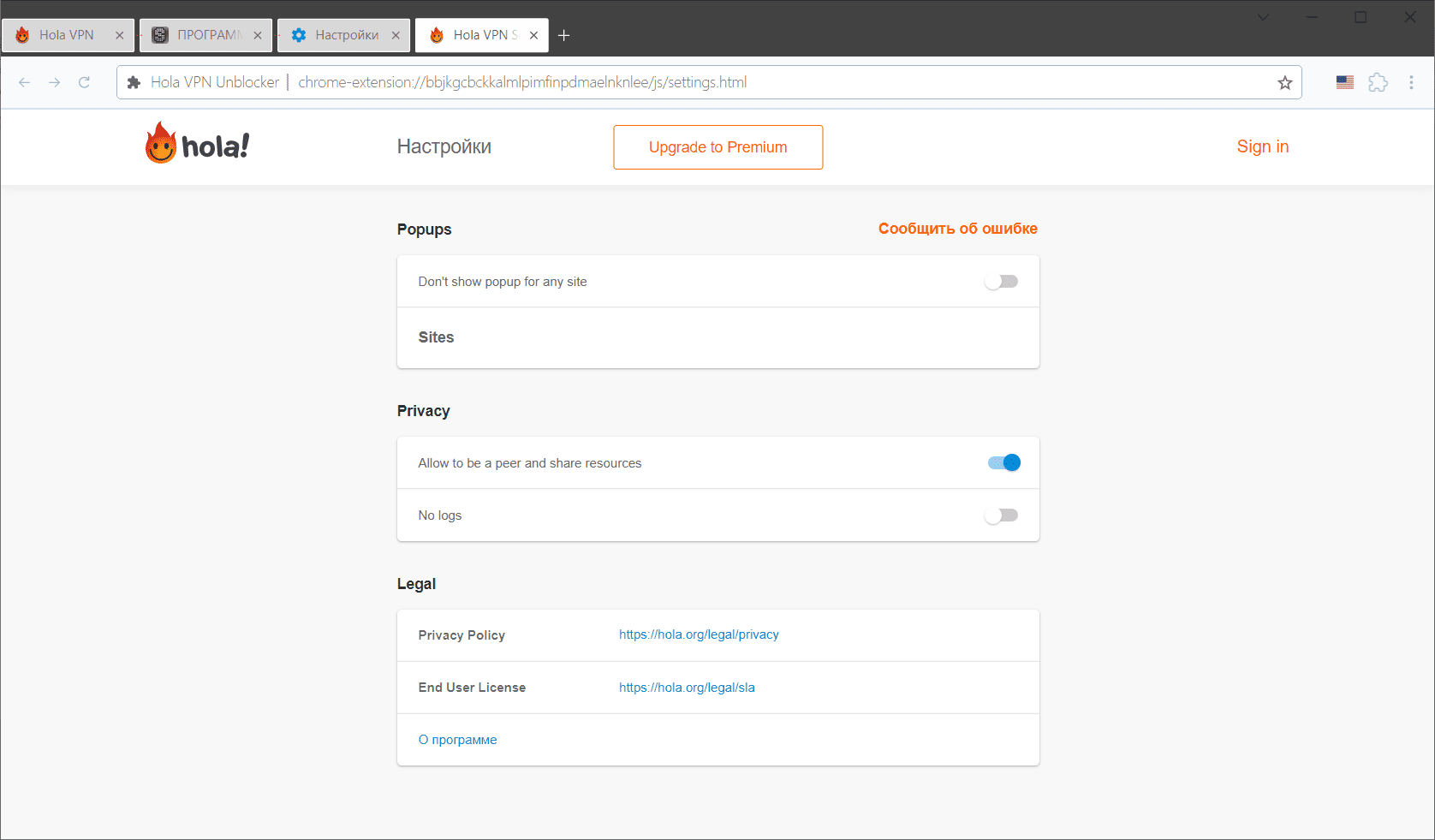
Hola Browser: Unveiling the Truth Behind the Free VPN and Its Controversies
In the realm of internet privacy and security, virtual private networks (VPNs) have become increasingly popular. One name that has surfaced in this space, often accompanied by both intrigue and controversy, is Hola Browser. Marketed as a free VPN service, Hola Browser promises to provide users with enhanced privacy and access to geo-restricted content. However, a closer look reveals a more complex and potentially concerning reality. This article aims to dissect Hola Browser, exploring its functionality, its business model, and the controversies that have plagued its reputation.
What is Hola Browser?
Hola Browser operates as a peer-to-peer (P2P) VPN network. Unlike traditional VPNs that utilize dedicated servers, Hola leverages the bandwidth and resources of its users to create its network. This means that when you use Hola Browser, your internet connection can be used by other Hola Browser users, and vice versa. This unique approach is what allows Hola Browser to offer its services for free.
How Does Hola Browser Work?
When you install Hola Browser, you’re not just getting a typical browser with VPN capabilities. You’re essentially becoming part of a large, distributed network. When you access a website through Hola Browser, your request might be routed through another user’s computer in a different country, masking your true IP address and making it appear as if you’re browsing from that location. Similarly, your bandwidth might be used to route traffic for other Hola Browser users.
The Controversy Surrounding Hola Browser
The free nature of Hola Browser comes at a cost, and this is where the controversies begin. Here’s a breakdown of the major concerns:
Bandwidth Sharing and Security Risks
The P2P nature of Hola Browser means that your internet connection and IP address can be used by other users. This raises significant security risks. If another user engages in illegal activities while using your IP address through Hola Browser, you could potentially be held liable. Furthermore, sharing your bandwidth can slow down your internet speed and increase your data usage.
Selling User Bandwidth
One of the most significant controversies surrounding Hola Browser revolves around its business practices. It was revealed that Hola Browser was selling its users’ bandwidth through a commercial VPN service called Luminati (now Bright Data). This meant that paying customers could use Hola Browser‘s network to route traffic, potentially for malicious purposes, without the knowledge or consent of the users whose bandwidth was being used. This practice was widely criticized as unethical and a breach of user trust.
Botnet Activity
Concerns have been raised that Hola Browser‘s network could be used as a botnet, a network of compromised computers used to launch cyberattacks. The vast number of users and the ability to route traffic through their computers make Hola Browser a potentially attractive target for malicious actors. While there’s no concrete evidence to definitively prove that Hola Browser has been used as a botnet, the possibility remains a serious concern.
Lack of Transparency
Hola Browser has been criticized for its lack of transparency regarding its operations and business practices. The company initially downplayed the extent to which it was using its users’ bandwidth and the potential security risks involved. This lack of transparency further eroded user trust and fueled concerns about the company’s motives.
Is Hola Browser Safe to Use?
Given the controversies and security risks associated with Hola Browser, it is generally not recommended to use it. The potential for your bandwidth to be used for malicious purposes, the lack of transparency, and the ethical concerns surrounding its business practices outweigh the benefits of a free VPN service. [See also: Best VPN Services for Privacy].
Alternatives to Hola Browser
If you’re looking for a reliable and secure VPN, there are many reputable alternatives to Hola Browser. These VPNs typically use dedicated servers, have clear privacy policies, and are transparent about their operations. Some popular alternatives include:
- NordVPN
- ExpressVPN
- Surfshark
- CyberGhost
- Private Internet Access
These VPNs may require a subscription fee, but they offer a much higher level of security and privacy compared to Hola Browser. [See also: Comparing Free vs Paid VPNs].
Bright Data (Formerly Luminati) and Its Connection to Hola
As mentioned earlier, Hola Browser‘s bandwidth was sold through a commercial VPN service called Luminati, which has since been rebranded as Bright Data. Bright Data offers proxy services to businesses and individuals, allowing them to access data from around the world. While Bright Data claims to have strict ethical guidelines, the fact that it was initially built upon Hola Browser‘s network continues to raise concerns about its origins and potential for misuse.
The Importance of Reading the Fine Print
The Hola Browser controversy serves as a reminder of the importance of reading the fine print and understanding the terms of service before using any online service, especially free ones. Many free services rely on unconventional business models that may compromise your privacy and security. It’s crucial to be aware of the potential risks and to make informed decisions about which services to use. [See also: Understanding VPN Protocols].
The Future of VPNs and Privacy
The demand for VPNs and online privacy tools is likely to continue to grow as concerns about data security and surveillance increase. However, it’s important to choose VPNs carefully and to be wary of services that seem too good to be true. By understanding the risks and benefits of different VPN options, users can make informed decisions that protect their privacy and security. The Hola Browser saga is a cautionary tale that highlights the importance of due diligence and critical thinking when navigating the complex world of online privacy.
Conclusion: Proceed with Caution When Considering Hola Browser
Hola Browser, while offering a seemingly appealing free VPN service, presents significant security and ethical concerns. Its peer-to-peer network architecture, the selling of user bandwidth, and the lack of transparency make it a risky choice for anyone concerned about their online privacy and security. While the allure of free access to geo-restricted content might be tempting, the potential consequences of using Hola Browser far outweigh the benefits. It’s advisable to opt for reputable and transparent VPN providers that prioritize user privacy and security, even if it means paying a subscription fee. The Hola Browser example is a strong reminder that in the world of online services, you often get what you pay for, and sometimes, the cost can be higher than you initially realize. Before installing any browser extension or application, especially one promising free services, research and understand the potential risks involved. Your online security and privacy are worth the effort.

